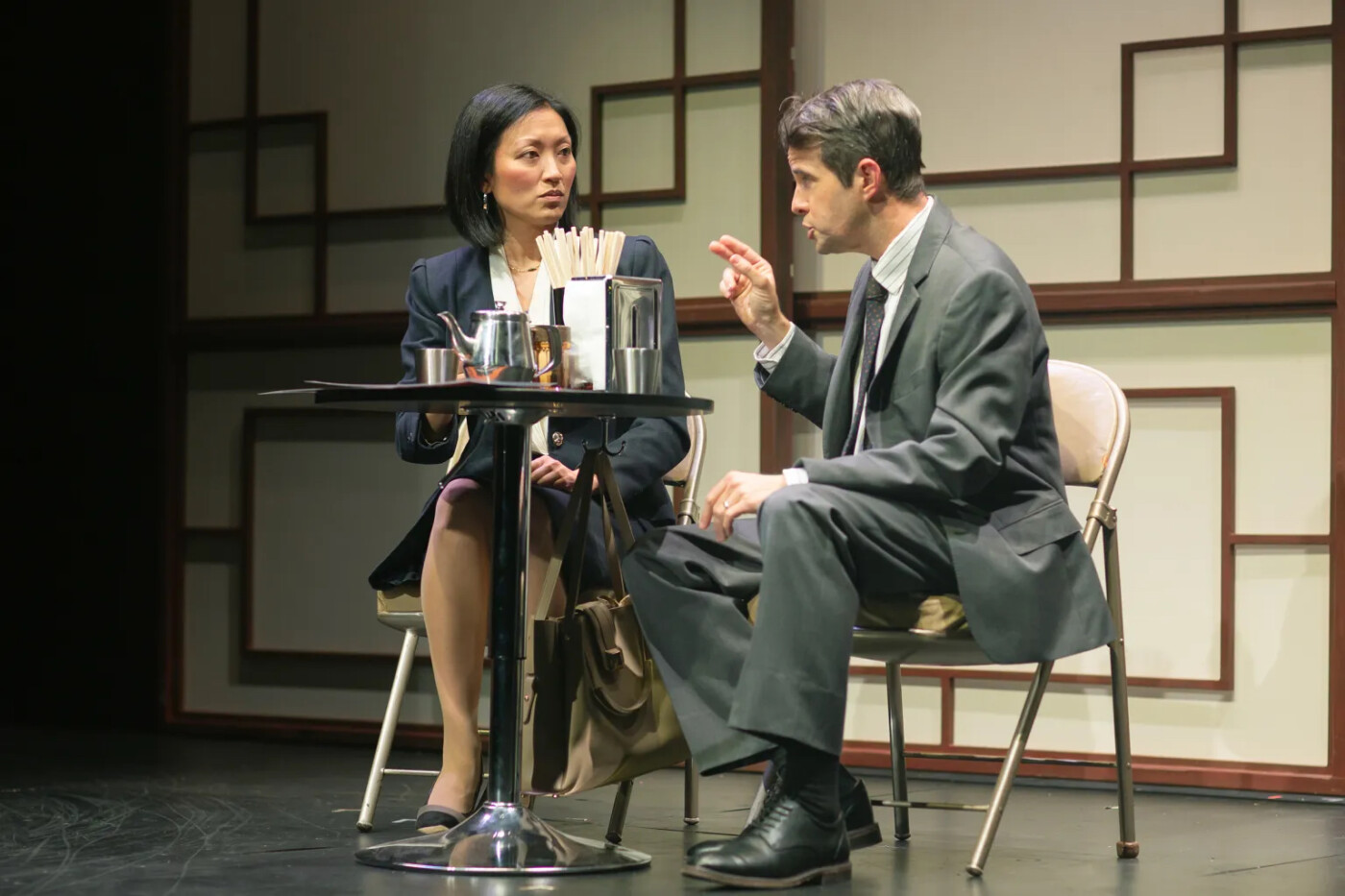The layers of sliding, Japanese-style screens that comprise the basic scenic design for David Henry Hwang’s brilliant two-act play “Chinglish,” now at San Francisco Playhouse, seem to reflect the many layers of the play itself. It is part social-political commentary, part poignant relationship drama and always a witty comedy of cultural and linguistic misunderstanding.
And, as directed by Jeffrey Lo (himself a fine playwright) with a terrific cast, and with some updating from Hwang to reflect new realities in U.S.-China politics since the play’s 2011 Broadway opening, it’s a surefire winner.
American businessman Daniel Cavanaugh (played with low-key, all-American charm by Michael Barrett Austin) from the nondescript city of Cleveland arrives in an equally nondescript Chinese city with the aim of convincing the minister of culture to hire his family sign-making company to create the signage for the city’s arts center. An English-language company like his, he assures them, would provide linguistically accurate translations to English.

Cavanaugh, anxious and eager to please, hires a British teacher, Peter Timms (Matthew Bohrer), as translator in his initial effort to convince the minister of culture (Alex Hsu) to hire him. Peter tells Cavanaugh that he’ll need to stay here a full eight weeks to get to know the culture and ingratiate himself with the powers-that-be. Cavanaugh agrees. The die is cast.
From that point on, things get increasingly complex. Everyone, including Cavanaugh, has a hidden agenda—a secret ambition, a fear, a murky past: Timms the teacher, the judge (the always hilarious Phil Wong), the minister of culture, the vice minister (Nicole Tung, elegant and self-assured in the particularly multi-layered role of a woman completely in control of her life).
Along the way various translators are hired (played to great effect by Sharon Shao, Xun Zhang and Wong again), all disastrously unsuited for the job.
So many things are going on here that it’s challenging to keep abreast. Through language difficulties, or even simply through frustration, people manage to insult each other. Or completely misunderstand each other (the Chinese team convinces itself that Cavanaugh’s business is based not in Cleveland but in the much more impressive Chicago). Or react to one another in startling ways (in one funny and telling scene, the Chinese are absolutely thrilled to discover that Cavanaugh was involved in the Enron debacle). And much more transpires in the hapless American businessman’s struggle to establish himself in what is, to him, an impenetrable environment.

Along the way, the actors, even Bohrer as the British translator, are often speaking Mandarin to one another. In fact, a full quarter of the dialogue is in Mandarin, with the text in English projected on a screen. (We also see, projected, wildly inaccurate translations from Cavanaugh’s English.)
It’s a truly impressive multilingual feat on the part of the actors, but it’s not unexpected in an excellent company like San Francisco Playhouse.
Hwang’s play can be challenging to parse—there’s so much going on in this dialogue-heavy clash of cultures—but it’s a fascinating journey all the way through.
“Chinglish” continues through June 10 at San Francisco Playhouse, 450 Post St., S.F. Tickets are $15 to $100. Visit sfplayhouse.org.
